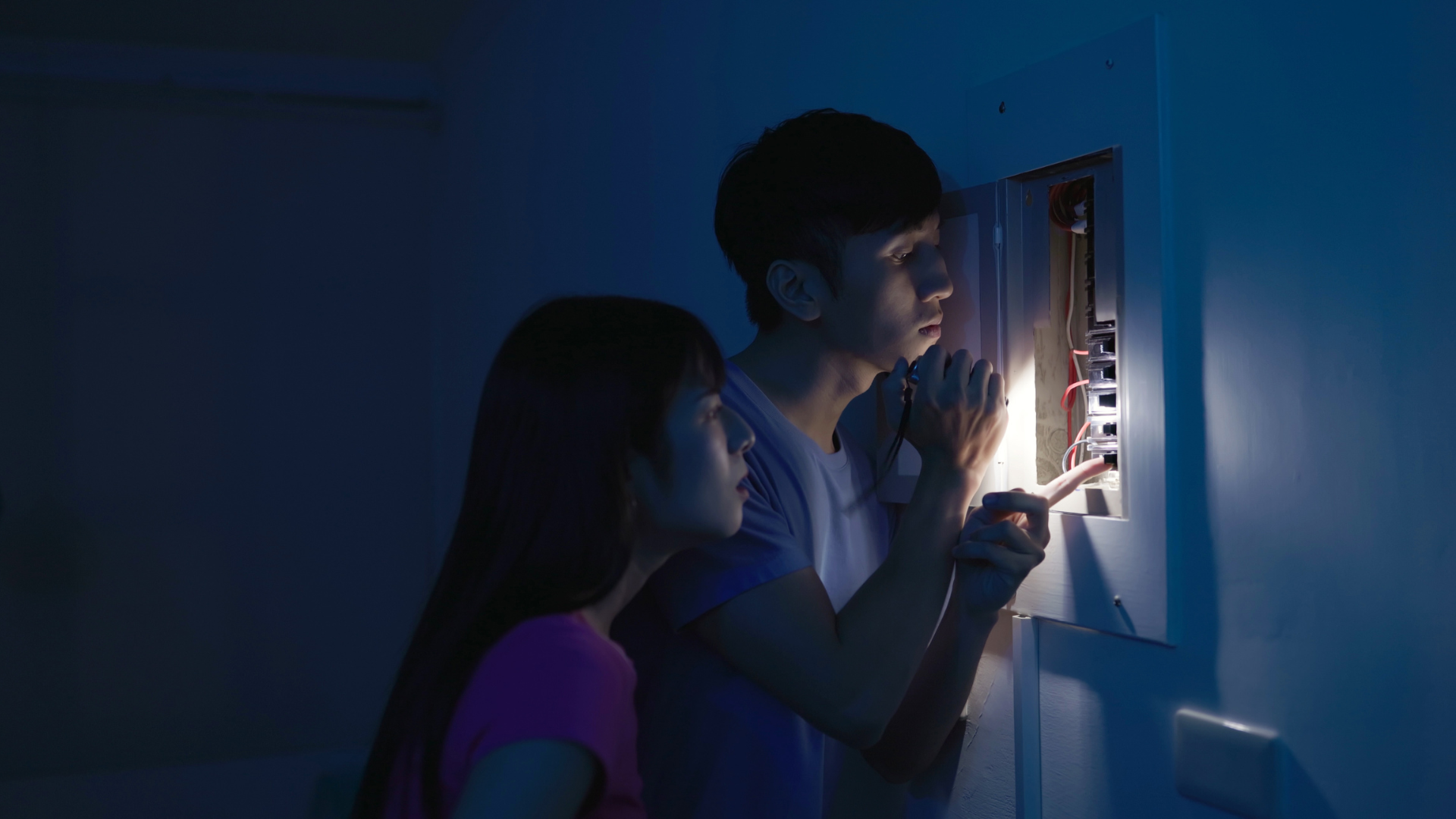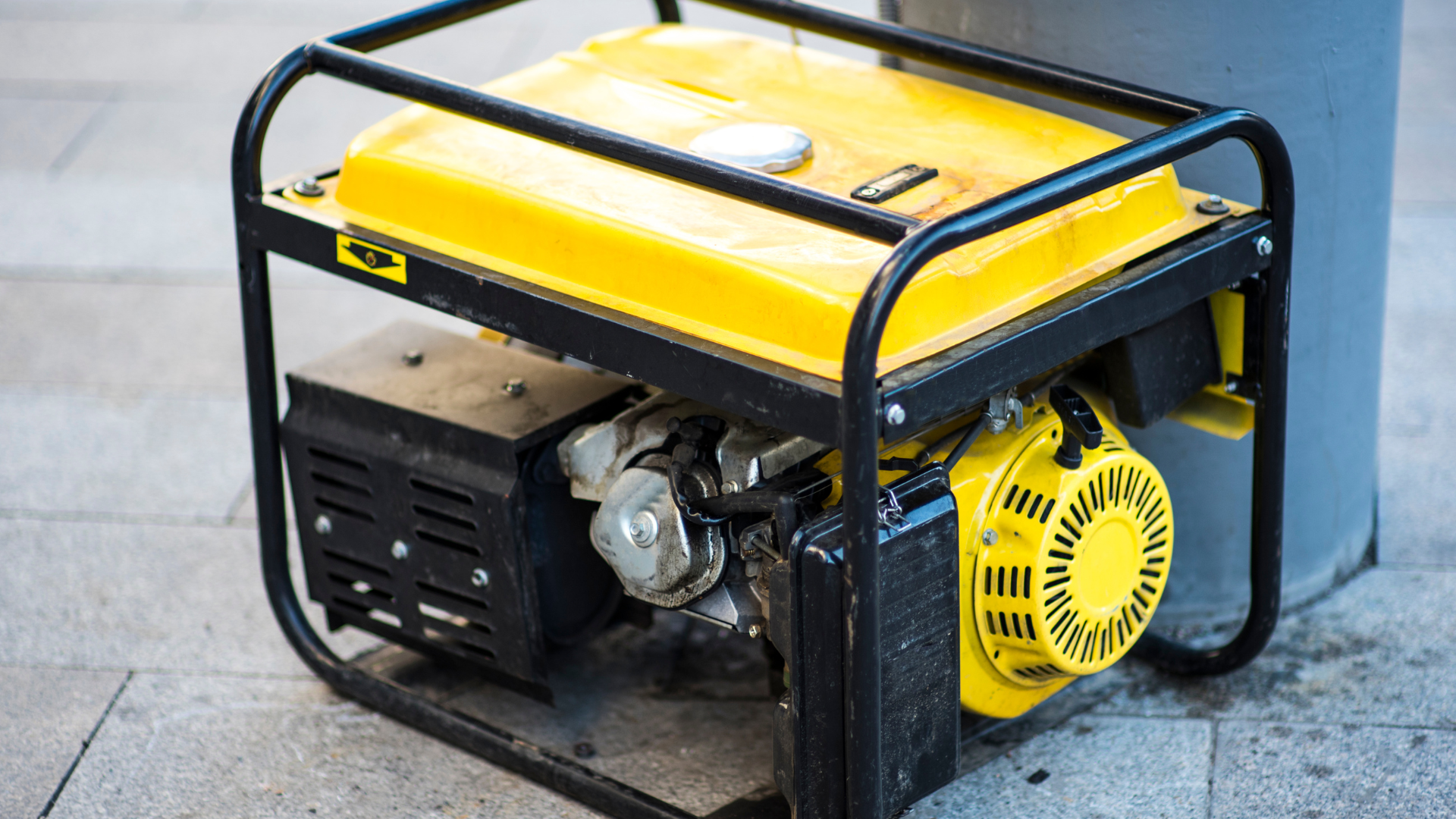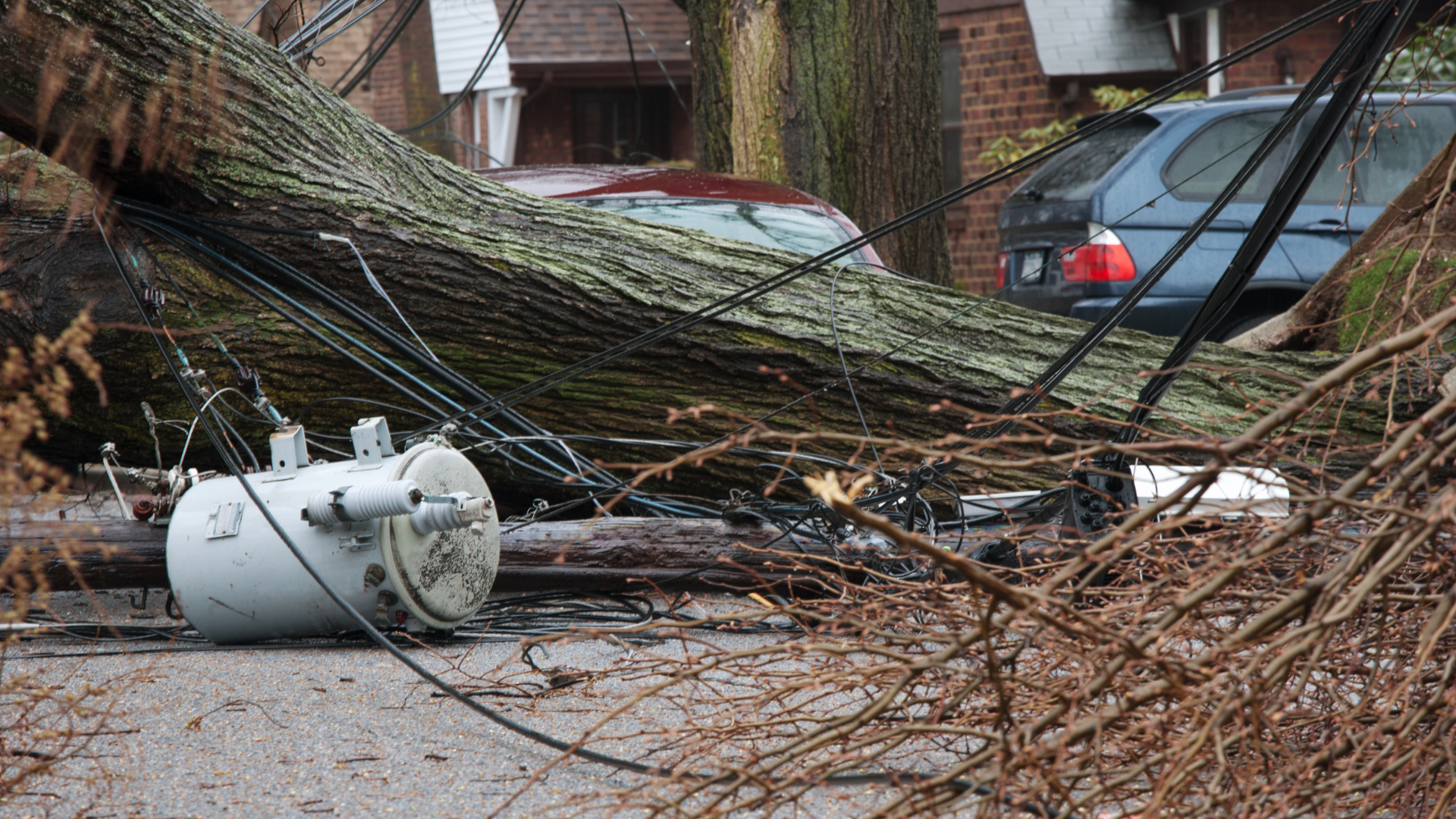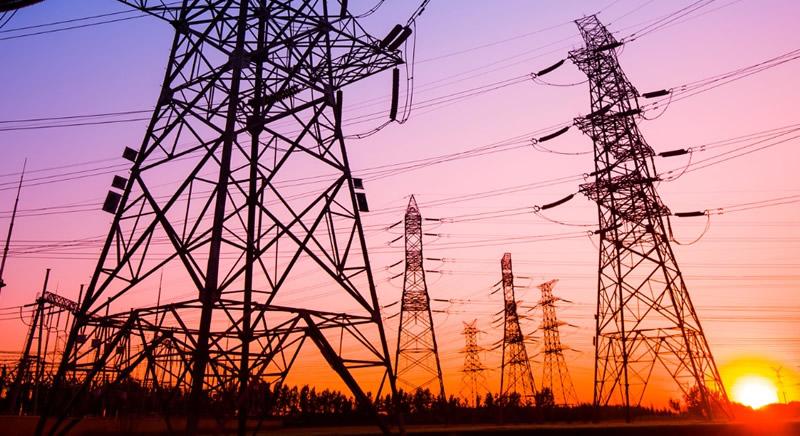What is a Power Outage?
A power outage is a short- or long-term state of electric power loss in a given area or section of a power grid. These can occur to households as a result of planned outages, severe weather, equipment failure, grid overload, animal interference, and human-caused incidents, like cybersecurity attacks. Losing power to your home can result in a loss of Air Conditioning/Heating, Internet, water, medical equipment and electronic appliances, and threaten life safety.

Before an outage
Individuals should take the following steps prior to outages in order to prepare:
- Stay updated with weather forecasts and emergency alerts.
- Develop a family emergency plan that outlines what you will do during a power outage.
- Assemble an emergency kit including essential supplies such as portable/rechargeable batteries, flashlights, battery-powered radios, and nonperishable foods.
- Charge your devices including cell phones, laptops, and any other essential devices.
- Unplug sensitive electronics and appliances to protect them from power surges caused by lightning strikes or electrical disturbances.
- Consider investing in a backup power source, such as a generator, to maintain essential functions during power outages.
- If you rely on medication that requires refrigeration, talk to your doctor about alternative storage options or backups in case of a power outage.
Businesses should take the following steps to prepare for outages:
- Develop a Business Continuity Plan (BCP) outlining procedures for responding to a power outage, including data backup, communication strategies, and employee roles.
- Determine how you will communicate with employees and customers during an outage. This may involve email, text messages, or social media updates.
- Train employees on the BCP, including how to shut down equipment safely, use backup systems, and communicate with customers.
- Identify critical equipment needed to operate and prioritize backup power for those systems.
- Consider an emergency generator or a Uninterruptible Power Supply (UPS) to maintain power for critical operations. Ensure proper installation and maintenance of backup systems.
- Regularly back up important data and store it securely off-site to prevent loss during an outage.
- Install surge protectors to safeguard electronics from power surges when power returns.
- Ensure readily available flashlights and battery-powered lanterns for navigating during an outage.
- Maintain a well-stocked first-aid kit and ensure fire alarms have battery backups.
- If your security system relies on electricity, explore backup battery options or alternative monitoring methods.
- Ensure your business insurance covers potential damage or losses caused by power outages.
- Have a backup plan for processing payments in case electronic systems are unavailable.

During an outage
When power outages occur, it is important to take these steps:
- To report an outage, contact BGE by visiting www.bge.com, or call 877-778-2222. If you see sparking power lines, call 911 immediately. For other downed lines call 800-685-0123 or 410-685-0123 (TTY 800-735-2258).
- Listen to the radio for updates on the outage and recovery efforts.
- Keep refrigerator and freezer doors closed. A full refrigerator will keep food cold for about 4 hours and a full freezer will stay cold for about 48 hours. Do not eat any perishable foods if they have been kept longer without refrigeration.
- Use a food thermometer to check the temperature of foods before eating. Visit the Food Safety in Disasters webpage for more information.
By following these steps during a power outage, businesses can prioritize safety, take necessary actions to minimize losses, and potentially keep some operations running:
- Check on employees and customers and help them evacuate safely if necessary.
- Close cash registers, secure sensitive documents, and take other measures to protect the workplace.
- Inform employees about the situation and any plans for closure or remote work. If feasible, allow employees to work remotely to continue business functions.
- Switch to backup generators or UPS systems to maintain essential operations.
- Power down electronics and machinery to prevent damage from surges when power returns.
- Update customers on your website or social media regarding closure, limited operation, or extended wait times.
- Discard perishable food items if refrigeration is unavailable for an extended period.
- If camera systems are down, increase security patrols or utilize alternative monitoring methods.

Tips for Generator Safety
- Never use a generator indoors including garages, basements, crawl spaces, and even partially enclosed spaces. CO is odorless and colorless and can be deadly at high concentrations.
- Place the generator outdoors and away from windows. Fumes can easily seep into your home through openings, posing a serious health risk.
- Install carbon monoxide detectors in your home to alert you to dangerous CO levels.
- Keep the generator dry and avoid operating it in wet conditions.
- Use only heavy-duty, outdoor extension cords. Ensure the cords are rated for the appliance load you will be using and have all three prongs, especially a grounding pin. Avoid damaged cords with cuts or tears.
- Never plug a generator directly into a wall outlet. This practice, called backfeeding, can be extremely dangerous and can electrocute utility workers, neighbors, and yourself.
- Keep the generator away from flammable materials such as gasoline, propane, and other liquids.
- Refuel the generator outdoors and when it's cool. Never refuel a hot generator and avoid spills that could ignite.
- Let the generator cool down before storing it as generators can get very hot during use.
- Read and follow the manufacturer's instructions. Every generator is different, so ensure you understand the specific safety protocols for your model.
- Turn off and unplug appliances before starting the generator to avoid overloading the generator circuit when starting it up.

Tips for Extreme Cold
- Be cautious with electric space heaters connected to generators, as these can concentrate heat onto vulnerable areas if you aren’t careful, and can become a fire hazard.
- Preserve body heat with hand/foot warmers, heavy clothes and blankets.
- Minimize heat loss in your homes by keeping doors and windows closed.
- Cover your pets with extra blankets, towels, or their beds. Consider moving them to a smaller room that's easier to heat with your body heat or huddled together. For small animals like hamsters or guinea pigs, wrap their cage in a blanket (leaving ventilation) to trap body heat.
- Call 911 if you see anyone develop signs of hypothermia or frostbite.
Visit one of the county’s warming relief locations to stop in and warm up. For details and locations visit aacounty.org/warm.

Tips for Extreme Heat
- Stay cool and hydrated.
- Minimize physical activity, especially outdoors.
- Use cold compresses and wet towels.
- Utilize underground areas like cellars and basements to remain cool.
- Move your pets to a cool basement or other area with good air circulation. Provide them with plenty of cool, fresh water and consider using ice packs wrapped in towels to create cooling stations.
- Call 911 if people show signs of Heat Exhaustion or Heat Stroke.
Visit one of the county’s cooling relief locations to stop in and cool off. For details and locations visit aacounty.org/cool.

After an outage
- Treat all downed wires as live wires and keep your distance. To report downed lines call 800-685-0123 or 410-685-0123 (TTY 800-735-2258).
- Look for any signs of damage to electronics or appliances before plugging them back in. Discard any damaged items.
- Check out the USDA guide for food safety during outages. Discard any food that has been above 40°F for more than 2 hours. When in doubt, throw it out! Spoiled food can cause illness.
- Take pictures of spoiled food in case you need to file an insurance claim.
- Avoid overloading circuits by powering on appliances one at a time.
- Digital clocks, computers, and other devices may need to be reset.
- Thawed pipes could potentially leak, so do a quick inspection around your home.

